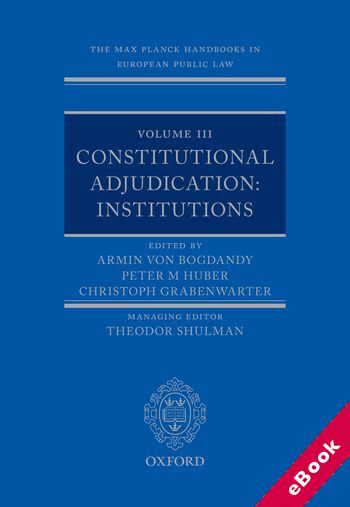
The device(s) you use to access the eBook content must be authorized with an Adobe ID before you download the product otherwise it will fail to register correctly.
For further information see https://www.wildy.com/ebook-formats
Once the order is confirmed an automated e-mail will be sent to you to allow you to download the eBook.
All eBooks are supplied firm sale and cannot be returned. If you believe there is a fault with your eBook then contact us on ebooks@wildy.com and we will help in resolving the issue. This does not affect your statutory rights.
The Max Planck Handbooks in European Public Law describe and analyse public law of the European legal space, an area that encompasses not only the law of the European Union but also the European Convention on Human Rights and, importantly, the domestic public laws of European states. Recognizing that the ongoing vertical and horizontal processes of European integration make legal comparison the task of our time for both scholars and practitioners, the series aims to foster the development of a specifically European legal pluralism and to contribute to the legitimacy and efficiency of European public law.
The first volume of the series began this enterprise with an appraisal of the evolution of the state and its administration, offering both cross-cutting contributions and specific country reports. The third volume (the second in chronological terms) continues this approach with an in-depth appraisal of constitutional adjudication in various and diverse European countries. Fourteen country reports and two cross-cutting contributions investigate the antecedents, foundations, organization, procedure, and outlook of constitutional adjudicators throughout the Continent. They include countries with powerful constitutional courts, jurisdictions with traditional supreme courts, and states with small institutions and limited ex ante review. In keeping with the focus on a diverse but unified legal space, each report also details how its institution fits into the broader association of constitutional courts that, through dialogue and conflict, brings to fruition the European legal space. Together, the chapters of this volume provide a strong and diverse foundation for this dialogue to flourish.